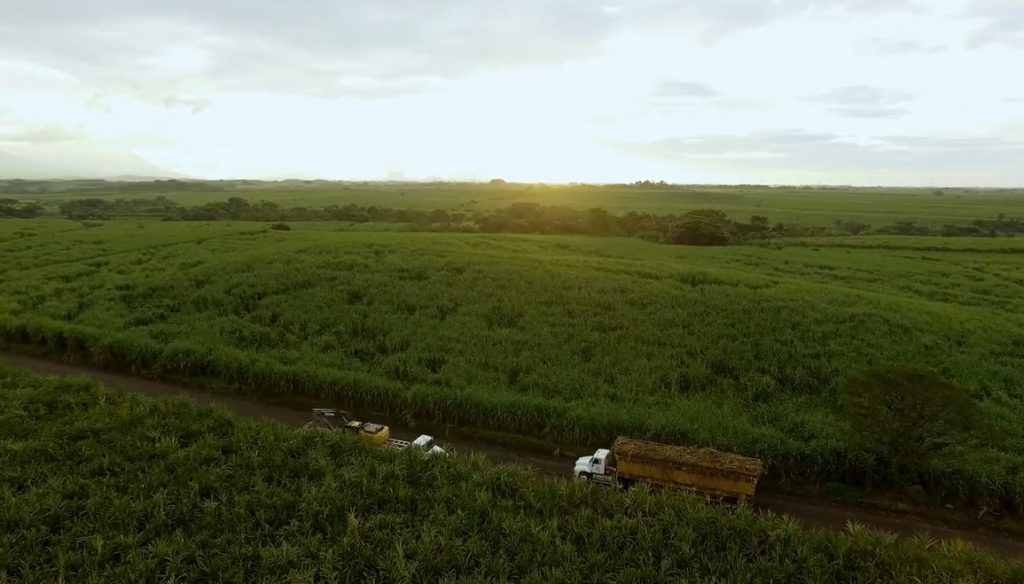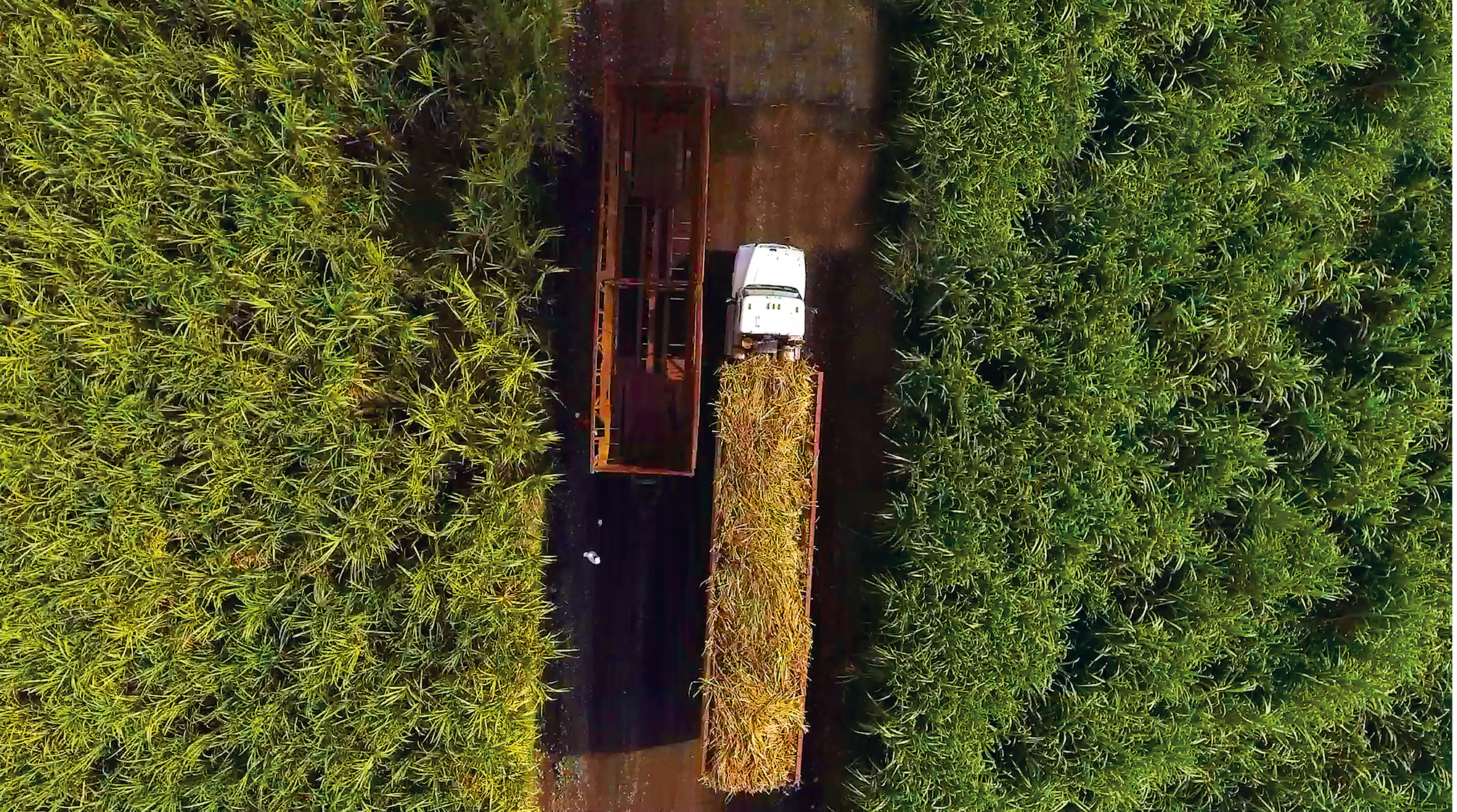In Guatemala 91% of the sugarcane produced is transported through an internal network of private roads built by the Guatemalan Sugar Industry. It means that only 1 out of every 10 vehicles that transport sugarcane uses national highways, the rest travel more than 2 thousand kilometers of roads or sugarcane routes that connect the cane fields with the factories in the sugar mills and that receive maintenance every year.
This internal road network of private roads helps to reduce the circulation of sugarcane trucks on national routes and are also used by dozens of communities as alternate routes.
In the “sugarcane route” road safety measures are applied such as signalmen or banderilleros in the sections where the transport of sugarcane crosses the roads to avoid accidents.
Thanks to an agreement between the Guatemalan Sugar Industry and the Technical Training Institute -Intecap-, all the pilots who transport sugarcane are trained and certified by said institution to guarantee that they have the skills to perform the job.
Transport Policy of the Guatemalan Sugar Industry
Once the sugarcane is harvested in the field, it is transported to the sugar mill factories to be transformed into sugar. In the last 20 years, the Guatemalan Sugar Industry has transformed the transport practices of the harvested sugarcane.
These practices have regulations within the transport union policy, which is mandatory for all sugarcane transport drivers. The Sugar Industry has a continuous education and training program to facilitate the practical implementation of all standards.

In addition, the regulations of the policy dictate that all sugarcane transport units must have side and rear signage, mechanical maintenance program in sugar mills workshops and sugarcane fixing when appropriate.
The Transport Union Policy is also mandatory knowledge and compliance for all suppliers that provide sugarcane transport services to sugar mills. Compliance with these measures is verified by the Guatemalan Sugar Producers Association inspectors.






